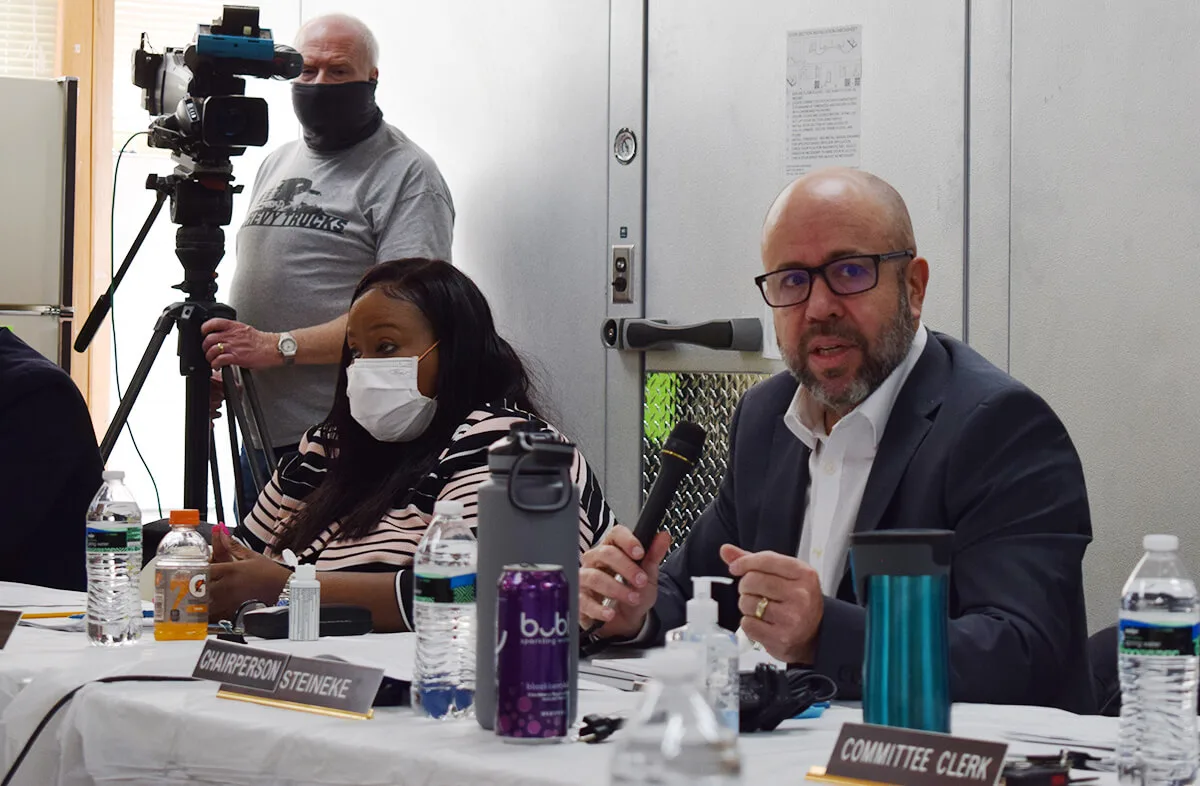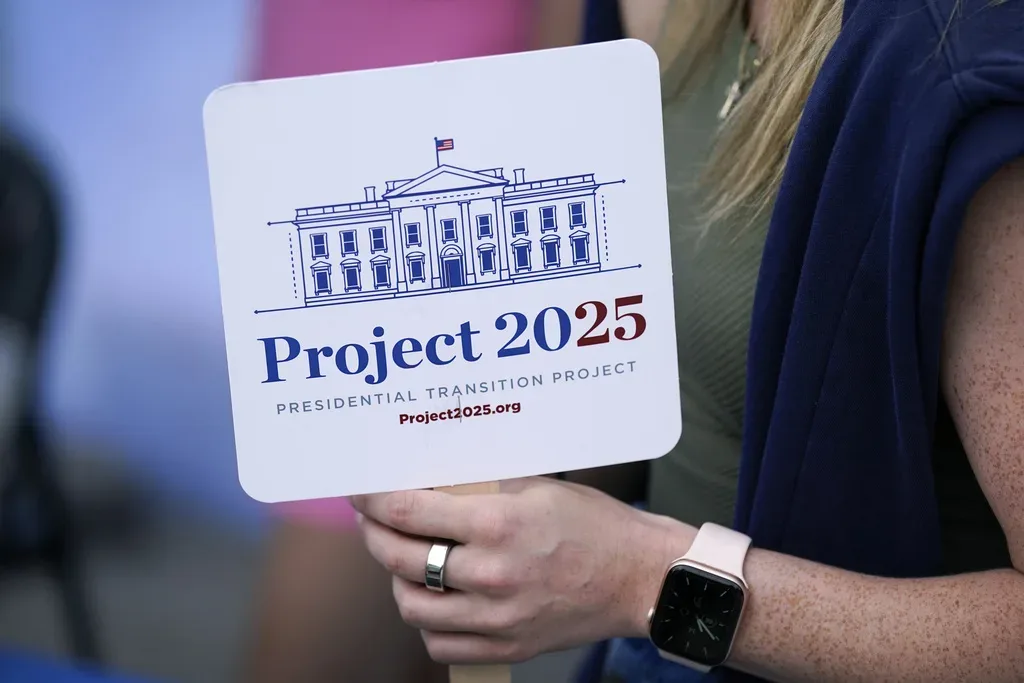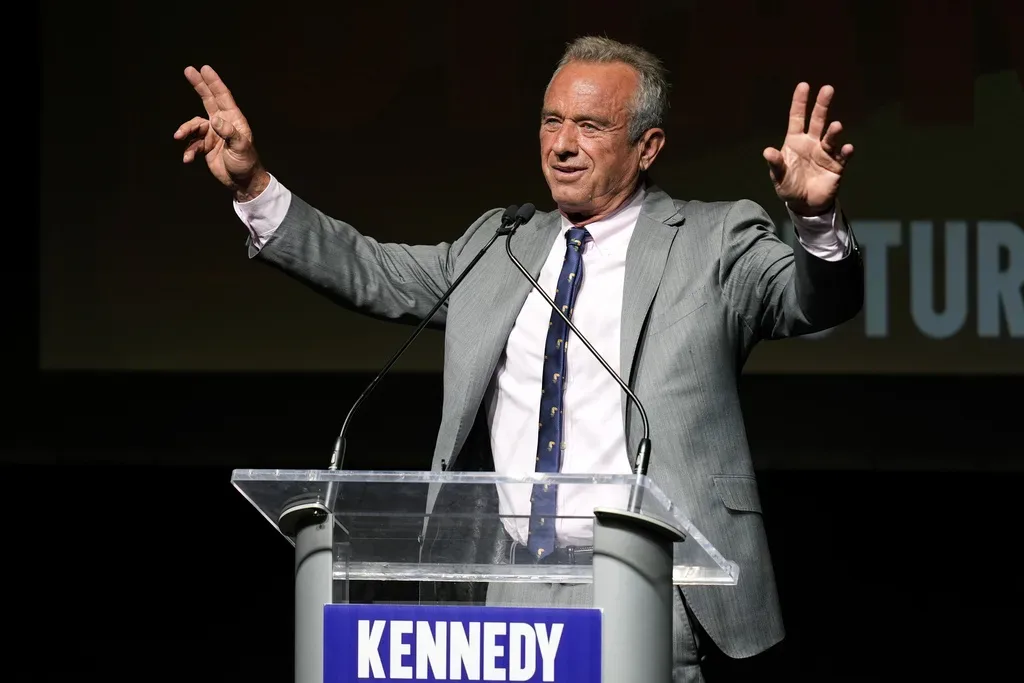
#image_title
#image_title
The recommendations, which carry no legal weight, have an uncertain path to becoming law.
The Assembly Speaker’s Task Force on Racial Disparities on Wednesday released 18 police reform recommendations, endorsing moderate changes such as banning chokeholds in some situations, mandating body cameras for patrol officers, and extending whistleblower protections for police who report fellow officers’ misconduct.
The recommendations came one day after the task force’s police reform-focused subcommittee held its eighth and final meeting, and the day after the nationwide police reform movement scored a victory with the murder conviction of former Minneapolis police officer Derek Chauvin for his killing of George Floyd last year.
Work on the task force began last August after the police shooting of Jacob Blake in Kenosha, with Assembly Majority Leader Jim Steineke (R-Kaukauna) and Rep. Shelia Stubbs (D-Madison) co-chairing the 33-member commission. The task force initially aimed to have proposals submitted in January, but it missed the mark by three months.
“We had many tough conversations over the past seven months, but I am proud we took the time to give these issues adequate consideration,” Stubbs said Wednesday in a tweeted statement. “Today we celebrate the progress of the task force, but tomorrow we begin the hard work of making these recommendations a reality.”
Steineke said he is “incredibly proud of the bipartisan work we’ve done to have the hard conversations that will make a difference in the lives of people of color in Wisconsin.”
The recommendations carry no legal weight; Republicans who control the Legislature may well ignore them. Steineke wrote in a private email before the task force’s first meeting that he wanted to establish “guardrails” to determine how far the task force would go, said leading the group was “a political loser,” and said the group could be used to make Democrats look bad.
RELATED: Email Reveals Real Reason Vos, Republicans Created Racial Disparities Task Force
Sen. Van Wanggaard (R-Racine), a former police officer who chairs the Senate’s Judiciary and Public Safety Committee, signaled he may oppose some of the proposals in a Wednesday statement.
“To the extent there are new legislative ideas, I will review them with an open mind and hope we will reach agreement,” Wanggaard said. “However, I will not support anything that jeopardizes public safety or the safety of our law enforcement officers.”
It was not immediately clear which proposal he felt may jeopardize safety.
Perhaps the most significant development to come out of the task force is the recommendation for the state to establish a statewide use-of-force policy. However, the task force is not making any recommendation on the language after the group failed to find consensus on specific wording during Tuesday’s meeting.
Activists on the subcommittee argued the use-of-force policy should specify that force should be “proportional” to reflect the need for de-escalation rather than jumping straight to lethal force. But police in the group disagreed and argued such wording could confuse officers in the heat of the moment; police said the policy should stipulate force be “objectively reasonable,” a phrase activists said left too much up to interpretation.
“The divide is between people who are affected by the brutality, affected by the policies, and the people who are not,” said ReBecca Burrell, a community activist from Milwaukee who sat on the subcommittee.
The task force opted to bring forth the general recommendation and divide into a smaller working group to potentially bring recommended language forward at a later date.
Assembly Speaker Robin Vos (R-Rochester) formed the task force last year in lieu of taking immediate action on a Democratic police reform package. In a statement Wednesday, Vos praised the task force’s efforts and said he “look[s] forward to seeing those bills introduced for consideration by the Legislature.”
Gov. Tony Evers on Wednesday issued an executive order mandating state law enforcement agencies—the Department of Natural Resources Division of Public Safety and Resource Protection, the Capitol Police, and the State Patrol—to update their use-of-force policies to prioritize de-escalation and ban chokeholds in most instances.
The full list of task force recommendations includes:
- Creating a standardized, statewide use-of-force policy
- Creating an independent use-of-force advisory board
- Requiring body cameras for cops on patrol, activated in certain public interactions
- Standardizing use-of-force reporting to the state Department of Justice (DOJ) and collecting data on more incidents
- Collecting and publishing data on no-knock search warrants through the DOJ
- Requiring departments to keep employment files on officers, and provide other agencies access upon request
- Requiring drug and alcohol testing when an officer kills or causes great bodily harm to someone
- Requiring a psychological exam for new police officers and standardizing rules about those exams
- Improving officer mental health services
- Requiring additional training for school resource officers, including more de-escalation training
- Requiring crisis intervention training for officers
- Expanding the state Law Enforcement Standards Board’s authority to decertify officers
- Creating a DOJ grant program for community-oriented policing (COP) house programs like the one in Racine
- Creating a DOJ grant program for violence interruption programs
- Expanding mental health crisis grant programs
- Creating “legal consequences” to prevent people unnecessarily calling police
Politics

Opinion: Many reasons why young adults should refuse to let Republicans kill the Affordable Care Act
In this op-ed, University of Wisconsin Medical School student, Samantha Crowley, shares the importance of young adults protecting the Affordable...

He said what? 10 things to know about RFK Jr.
The Kennedy family has long been considered “Democratic royalty.” But Robert F. Kennedy, Jr.—son of Robert F. Kennedy, who was assassinated while...
Local News

Stop and smell these native Wisconsin flowers this Earth Day
Spring has sprung — and here in Wisconsin, the signs are everywhere! From warmer weather and longer days to birds returning to your backyard trees....

Your guide to the 2024 Blue Ox Music Festival in Eau Claire
Eau Claire and art go hand in hand. The city is home to a multitude of sculptures, murals, and music events — including several annual showcases,...



